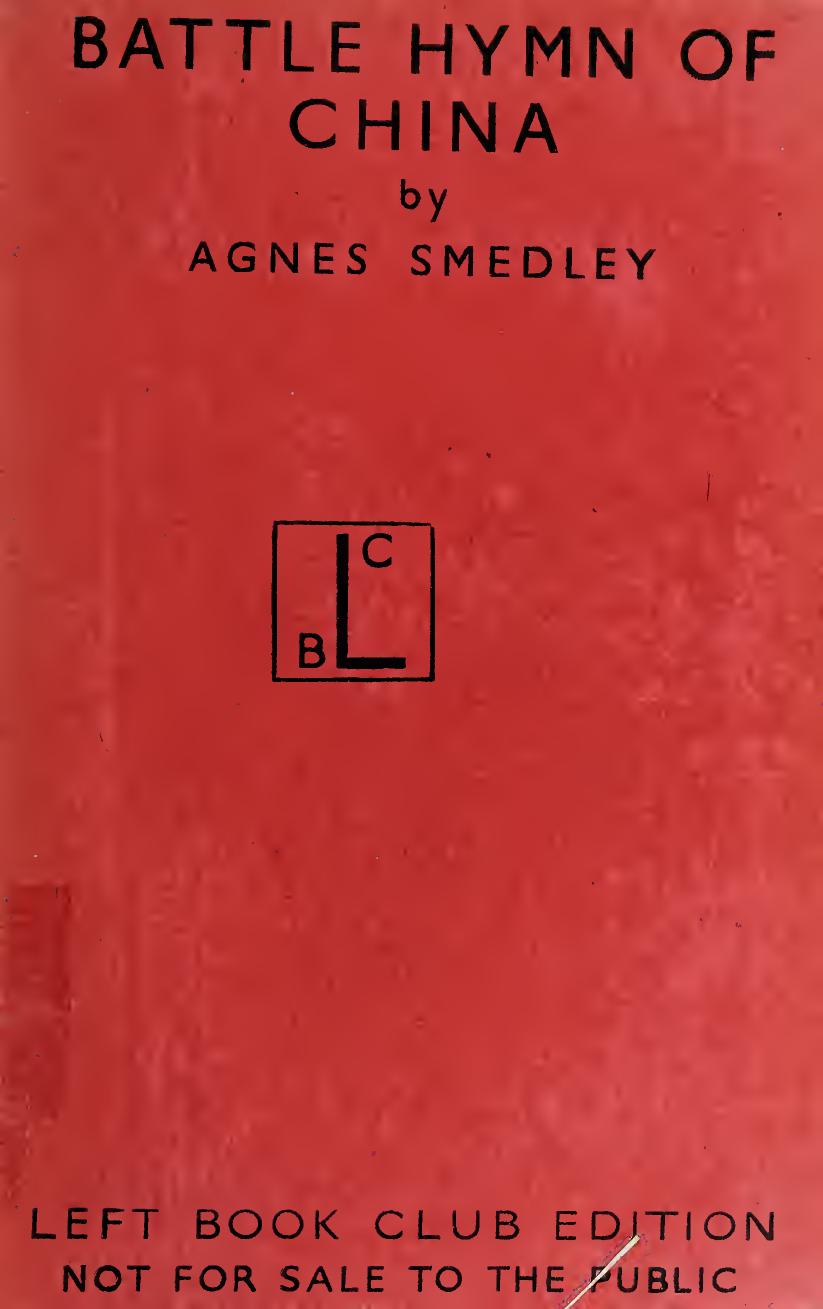Battle Hymn of China by Agnes Smedley

Author:Agnes Smedley
Language: eng
Format: epub, pdf
ISBN: 086358036X
Publisher: London Victor Gollancz Ltd
Published: 1943-06-15T00:00:00+00:00
The Women Take a Hand
When I first met old Mother Tsai, she had already emerged as a leader of the women in the valley. She was unusually tall for a âsouth Yangtze Valleyâ woman; her skin was brown, and the veins on her old hands stood out like ridges on a hillside. She was thin and hard, and when she spoke, her voice was firm and almost harsh. Her hair, touched with white, was drawn back from a high forehead and rolled in a knot at the nape of her neck. As a peasant woman and the mother of many sons, she had suffered bitterly all her life, but of this she never spoke. Her white cotton jacket was neatly buttoned up close around the neck and her dark cotton trousers always seemed to have just been washed. Though none of these people ever ironed their clothing, hers must somehow have been pressed beneath some weight. She was the embodiment of dignity and staunchness.
It was difficult to believe that she was sixty-eight, for she seemed much younger. She was, she told me, a widow with four children. Of her three sons, the two elder were in the New Fourth Army, and the younger, a boy of fifteen, helped her and her daughters-in-law till the fields.
Before the war, life in the villages had been drab and monotonous. But when the New Fourth Army had marched into the valley the year before, the world had seemed to enter with it. Many girl students had joined the Political Department of the Army; when they went knocking on the doors of the village women, the old world had crumbled. The ladies of the gentry had refused to receive them, sending their menfolk instead, and thus suggesting that the girls were prostitutes. But when the girls knocked on Mother Tsaiâs door, she looked into their eyes and knew they were not bad. She invited them in, placed bowls of tea before them, and called her daughters-in-law and neighbour women to come and sit with them. And in this way the Womenâs National Salvation Association was born in the valley. It grew until it had over a hundred members.
Mother Tsaiâs lean, tall figure could often be seen walking along the paths from village to village, urging women to join literacy classes and attend discussion groups to learn what the war was about and how they could help. After the dayâs work was done, women could be seen sitting on their doorsteps, cutting out pieces of cloth and sewing. When I asked them what they were doing, they replied: âMaking shoes for the Army.â
More and more women took over the field work previously done by men. The younger men had joined the Army and the older men and boys helped in the fields or carried supplies to the battlefield and brought back the wounded. On every festival day members of the Womenâs Association would go to the hospital to âcomfort the woundedâ with gifts of food, sing songs, and talk with the soldiers.
Download
This site does not store any files on its server. We only index and link to content provided by other sites. Please contact the content providers to delete copyright contents if any and email us, we'll remove relevant links or contents immediately.
| Africa | Americas |
| Arctic & Antarctica | Asia |
| Australia & Oceania | Europe |
| Middle East | Russia |
| United States | World |
| Ancient Civilizations | Military |
| Historical Study & Educational Resources |
The Third Pole by Mark Synnott(952)
Money for Nothing by Thomas Levenson(948)
The Economist (20210109) by calibre(937)
Christian Ethics by Wilkens Steve;(860)
Made in China by Anna Qu(855)
The Age of Louis XIV: The Story of Civilization by Will Durant(833)
Nonstate Warfare by Stephen Biddle(815)
Reopening Muslim Minds by Mustafa Akyol(813)
100 Posters That Changed The World by Salter Colin T.;(786)
The Shortest History of China by Linda Jaivin(779)
Culture by Terry Eagleton(776)
The Great Pyramid Void Enigma by Scott Creighton(761)
The Irish Buddhist by Alicia Turner(760)
Ideology by Eagleton Terry;(743)
Routledge Handbook of Contemporary India by Knut A. Jacobsen(742)
Sybille Bedford by Selina Hastings(689)
The Jews of Silence: A Personal Report on Soviet Jewry by Elie Wiesel(687)
Banaras: CITY OF LIGHT by Diana L. Eck(680)
Objects of Vision by Saab A. Joan;(670)
